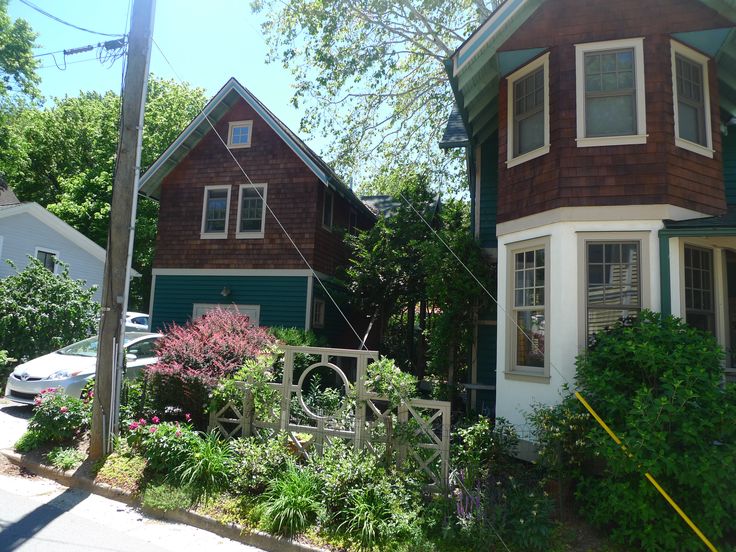AARP Hearing Center
ADUs Provide Unique Housing Solution to Today’s Challenges
Now, more than ever, we need innovative housing solutions to meet the needs for today’s families – and tomorrow's. The high cost and lack of available new space presents unique housing challenges.
There’s a solution we’re all familiar with. Homeowners have called them carriage houses or mother-in-law suites for years. But today they’ve got a new name: Accessory Dwelling Units, or ADUs.
ADUs provide a unique housing solution to today’s challenges. They can be used to keep multi-generational families together, to give homeowners the option to rent part of their property in order to make their mortgages or property taxes more affordable, and to give seniors more options for aging in place. Especially during the pandemic, ADUs represent an affordable housing option so people can live independently longer close to family.
But to really take off in Philadelphia, we need an updated city ordinance to allow ADUs by-right across the city. Despite some positive but minor changes made in 2012 and more recently, Philadelphia’s ADU ordinance still doesn’t reflect today’s needs, and it needs a major revision to allow for more accessible, sustainable, age-friendly housing.

What are Accessory Dwelling Units?
An Accessory Dwelling Unit (ADU) is a fully self-contained home with its own kitchen, bathroom(s) and sleeping area on the same lot as the main house. They’re a smart match for smaller households and can be created through basement or garage conversions, additions, or new construction of back yard ‘tiny homes.' Typically, most residential zones and requires that they be discreetly located to fit in well with the surrounding neighborhood. Oftentimes, they’re invisible from the street. However, you should check local regulations to be sure your project is in compliance. Creative design of ADUs can take many different forms and styles, they can fit discreetly into all sorts of communities, including suburban subdivisions, row-house streets (either with or without back alleys), urban neighborhoods — and, of course, large lots in rural areas.
- DETACHED ADU is a stand-alone home on the same lot as a larger, primary dwelling. Examples include backyard bungalows and converted outbuildings.
- ATTACHED ADU connects to an existing house, typically through the construction of an addition along the home’s side or rear. Such units can have a separate or shared entrance.
- GARAGE ADU makes use of an attached or detached garage by converting the space into a residence. Other options involve adding a second story ADU above or beside a garage or building a new structure for both people and cars.
Learn more about ADUs and access free publications here.
Upcoming ADU Events:
Join AARP Pennsylvania and the City of Philadelphia Accessory Dwelling Unit (ADUs) Committee for discussions on alternate housing options that could support Philadelphians.
- What is an Accessory Dwelling Unit (ADU)?
- Why do people create them?
- Who could benefit from an ADU?
- How can flexible housing options help caregivers?
- How will creating new living space benefit people of all ages?
Upcoming events include:
June 22 at 3:30 p.m. - ADU Community Conversation Learn More
June 29 at 3:30 p.m. - ADU Community Conversation Learn More
July 1 at 12:30 p.m. - Panel Discussion "Why ADUs are Important in Our Local Communities" Learn More
More About ADU Value
- According to a 2010 AARP Survey, 92% of seniors wish to stay in their communities. ADUs give them the flexibility to do so.
- ADUs may provide a lower-cost alternative to assisted living, which, according to research by Genworth, can cost seniors and their families over $3,500 per month.
- According to David Shove-Brown of the Architecture Firm //3877, ADUs may add value to residential property.
- Because of city ordinances and construction regulations, ADUs will blend into the neighborhood.
This information is provided for educational purposes only. For more information, please contact AARP Pennsylvania at AARPPA@aarp.org.
How Accessory Dwelling Unit Help Families
Making Philadelphia a Livable Community
AARP Pennsylvania is committed to working with the City of Philadelphia, residents and community partners to make Philadelphia a more livable community. Learn more about Philadelphia's Livable Communities Action Plan.
To learn more about AARP Pennsylvania and our work in local communities, email AARPPA@aarp.org.

































































